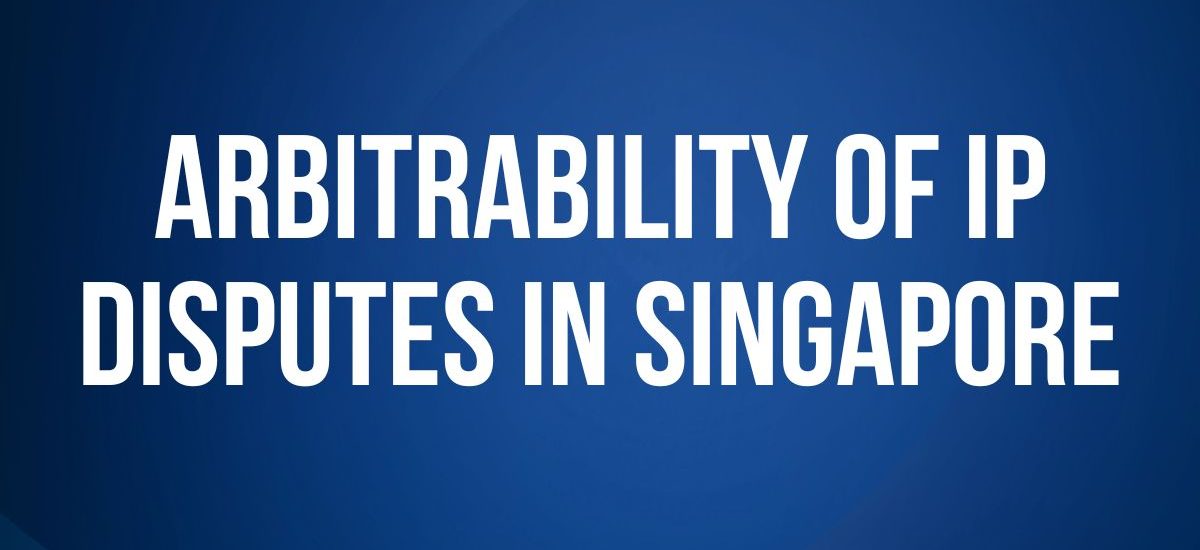The Ministry of Law of Singapore published a consultation paper on a draft Bill on March 11th. This draft Bill will, among other things, revise Singapore’s two arbitration acts to make clear that intellectual property issues in Singapore may be arbitrated.
The action is a follow-up to Hong Kong’s implementation of comparable provisions beginning on January 1st, 2018, through changes to its own Arbitration Ordinance. The modifications to the Hong Kong Arbitration Ordinance are mirrored and modeled after in the draft Singapore Bill.
Arbitration is a way to settle disputes outside the court system by injecting an outsider’s perspective into the disagreement. This process allows businesses and individuals to arrive collaboratively at a resolution while minimizing the negative impacts of litigation. In addition, arbitration is typically faster and cheaper than litigation, promoting broader efficiency in the marketplace.
The question of how arbitrable disputes is in Singapore has recently come to light amid negotiations between the US and China over trade tariffs. The US argues that cases involving intellectual property (IP) should be subject to the same arbitration as other commercial disputes, as this is a form of reciprocal investment by China.
This raises important questions about how arbitrable disputes are defined in Singapore and whether IP disputes should be centralized or left to regional courts. It also underscores the importance of regulatory frameworks and precedents setting clear rules for resolving disputes.
What is the arbitrability of IP disputes in Singapore?
The nature of intellectual property rights (IPRs) has always been a highly contentious issue in international trade, asymptotically necessitating cross-border dispute settlement. Countries worldwide have endeavored to develop their IPR regimes to mitigate potential negative effects on trade and investment and achieve other developmental objectives, such as market access. Notwithstanding this public policy objective, there is a general recognition that resolving disputes without resorting to binding arbitration may lead to greater efficiency and less delay, but at higher costs for businesses involved. In Asia, particularly Singapore, arbitral decisions are non-binding, and businesses regularly pursue remedies before courts or tribunals. This article discusses the arbitrability of IP disputes in Singapore, drawing on case law and literature.
The fact that the SIAC and HKIAC have special panels of arbitrators for IP disputes shows how long the local arbitration institutions in Hong Kong and Singapore have focused on IP-related disputes and how this has helped arbitration users feel more at ease during the arbitration process. Arbitration in IP issues is now easier in the area because of this most recent action in Singapore and earlier changes to the arbitration statute in Hong Kong.
IP law is a complex area, and it can be difficult to determine whether or not a dispute between two parties over IP rights is arbitrable. Arbitration is when an independent third party arbitrates the dispute and awards a verdict binding on both parties.
What are the proposed elements of legislative changes in Singapore?
IP Disputes in Singapore are typically arbitrable. This is because Singapore has a strong legal and independent judicial system. Enforcing a claim through the law (the litigation process) will generally be quicker and more efficient than arbitration. Legislation regulating the jurisdiction of courts and the enforcement of judgments has been enacted to ensure this. Jurisdiction over disputes concerning the intellectual property is also evenly balanced between Singapore’s national courts and its regional tribunals.
- Regarding amendments to the International Arbitration Act, a provision is made for the parties to have the freedom to choose the remedies or remedies that the arbitral tribunal may grant, with two different wording proposed.
- Assurance that enforcing an arbitral ruling relating to a dispute over intellectual property rights is not against Singaporean national policy.
- It should be clear that arbitration decisions only apply to the parties involved in the dispute (in personam), not to the rest of the world or any third parties who may be granted licenses to use intellectual property.
- Additionally, the proposed bill offers flexibility to cover varied IP rights in different jurisdictions and to accommodate new IP rights and conflicts that may emerge by providing a non-exhaustive list for the definition of IPR dispute and intellectual property right.
Conclusion
IP rights are critical for businesses. Disputes over intellectual property can lead to costly litigation, but arbitration can mitigate this risk. As a result, arbitration should be more widely accepted in Singapore as an affordable and efficient way to resolve IP disputes. Are you facing Intellectual property issues for your business? Then Brealant promises to provide you with a modern and insightful approach to IP-related issues. For more details, visit the website and contact the IP experts for professional advice.

